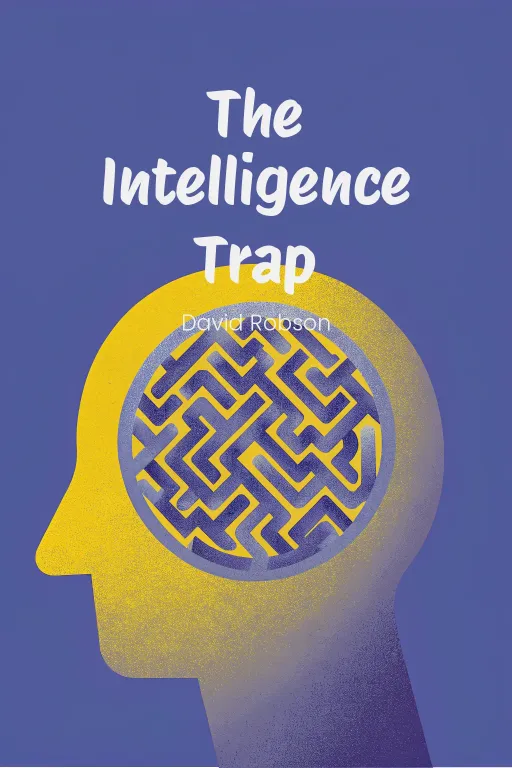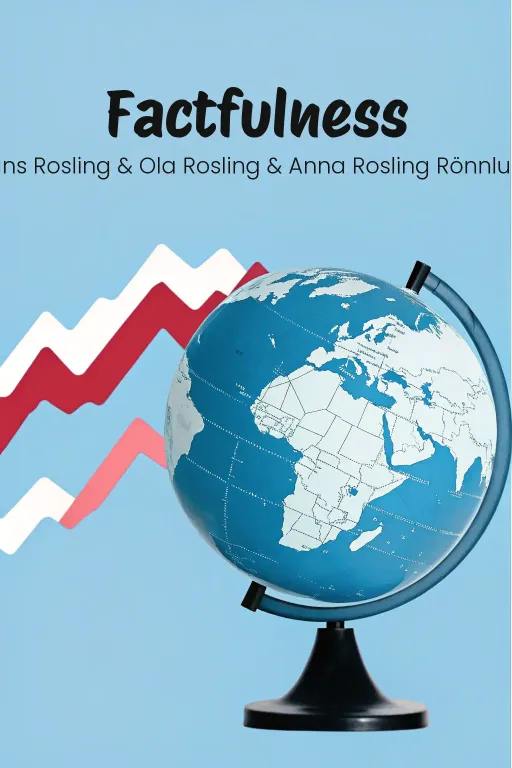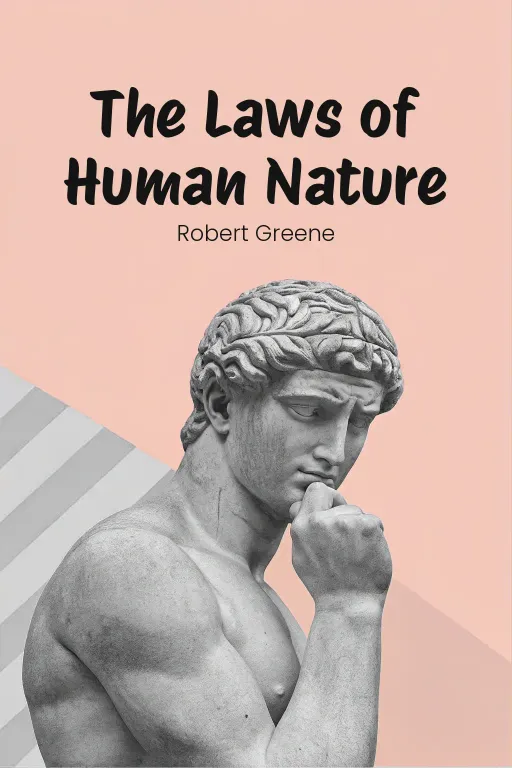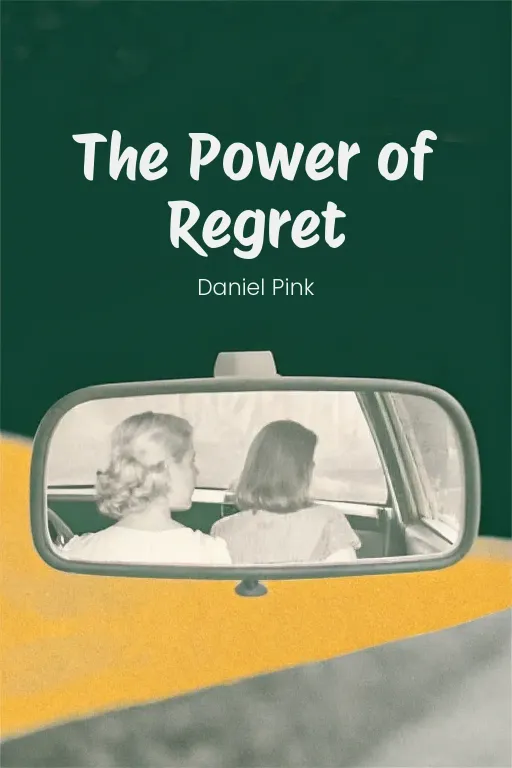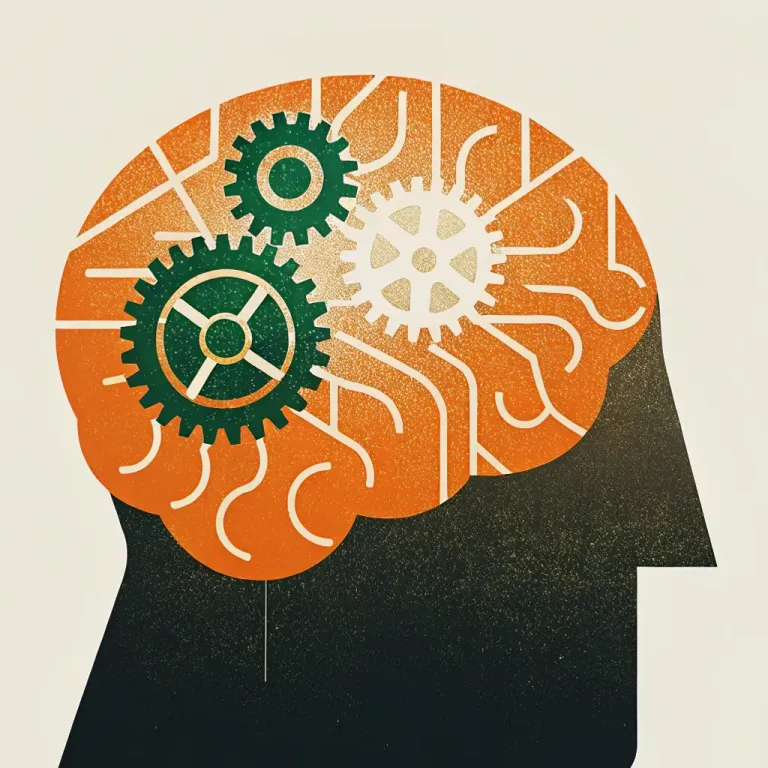
Smarter Than You Think? The IQ Trap Exposed
Podcast by The Mindful Minute with Autumn and Rachel
Why Smart People Make Dumb Mistakes
Smarter Than You Think? The IQ Trap Exposed
Part 1
Autumn: Hey everyone, welcome back! Today we're tackling a really interesting question: Why is it that even the smartest people can make incredibly dumb mistakes? I mean, we all know people who are brilliant in some ways, but then they fall for scams or just make terrible decisions. Rachel: Right? It’s like, you see a brilliant scientist come up with some amazing invention, and then they’re on Twitter ranting about conspiracy theories. Or that friend who knows everything about history but keeps falling for those "get rich quick" schemes. It's both confusing and, honestly, a little comforting—makes us feel a bit less bad about our own slip-ups. Autumn: Totally! And that's kind of the idea behind David Robson's book, “The Intelligence Trap.” His argument is that intelligence is way more than just being good at puzzles or tests. It's also about understanding your emotions, dealing with your biases, and, you know, being able to think straight when things get messy. Robson basically says IQ scores only tell part of the story; things like emotional intelligence, curiosity, and even, surprisingly, humility, are super important when it comes to making good calls. Rachel: So, being book-smart isn't enough, huh? You've also got to, like, know when to quit while you're ahead. A skill that seems to elude some of the brightest minds. Autumn: Exactly. Robson uses a mix of psychology research, history's biggest screw-ups, and real-life examples—like huge business fails and even disasters—to explain why these mistakes happen. And, more importantly, how we can actually learn to avoid them ourselves. Rachel: Okay, so here's what we’re going to dive into today. First off, we'll get into the hidden downsides of having a high IQ—how being super smart can actually lead you astray. Then, we'll break down Robson's advice for thinking smarter—some actionable steps to get over our biases and think more clearly. And finally, we'll chat about teamwork: how to actually turn a bunch of smart people into a wise team, instead of just a bunch of egos battling it out. Autumn: Yeah, it's a wide range of topics, from individual errors to big group achievements. Ready to jump in? Rachel: Let's do it.
The Limitations of Intelligence
Part 2
Autumn: Okay, picking up where we left off, let’s dive into the blind spots of IQ and the limitations of intelligence. The core message Robson delivers so well is that a high IQ doesn’t automatically guarantee success or good judgment. It’s just not the golden ticket to a fulfilling life. Rachel: Right, and that brings us to Terman’s Termites. Honestly, the name itself makes you think of some weird experiment with tiny furniture and microscopes! Autumn: I know, right? But it was actually Lewis Terman’s massive project, tracking 1,500 high-IQ kids for decades. He expected them to, you know, basically take over the world—become leading scientists, cultural icons, that sort of thing. Rachel: Spoiler alert: they didn’t exactly dominate, did they? Autumn: Not really. Some led pretty normal, moderately successful lives. But others, including some with the highest IQ scores, actually didn’t live up to those huge expectations. Take Sara Ann, for example. IQ of 192! On paper, she should have been unstoppable, but she ended up with a string of unfinished projects and struggled to find any real stability. Rachel: Wow, IQ of 192? That's insane! But it sounds like a high score wasn’t enough to handle the…messiness of real life. Autumn: Exactly. The study “really” highlighted that intelligence, at least as measured by IQ tests, is just one piece of the puzzle. Success depends on so many other factors – perseverance, resilience, emotional intelligence, you name it. Even someone like Richard Feynman didn’t even qualify for the study because he didn't meet Terman's IQ cutoff! Rachel: Wait a second. Feynman—one of the greatest physicists—wasn’t smart enough for this study? That's a plot twist worthy of a psychology textbook. Autumn: It is fascinating, isn’t it? Feynman didn’t meet this specific measure of intelligence, but he went on to revolutionize science. Meanwhile, some of these "Termites," who had rigorously measured intellects, struggled to find their footing. Rachel: So it’s less about how fast your brain works and more about how you adapt, how you tackle challenges, and, I guess, how you pick yourself up when things go wrong. Autumn: Bingo. But Robson goes deeper than just the statistics of IQ. He explores the psychological reasons why intelligence can fail us. One key example is "earned dogmatism," and even Einstein fell victim to it. Rachel: Einstein? Seriously? The E=mc² guy, who’s basically a synonym for genius, got stuck in his own head? Autumn: Hard to believe, right? Early on, Einstein was incredibly open-minded, challenging the very foundations of physics. But later, after becoming world-famous, he became…well, stubborn. He focused on creating a unified field theory, trying to combine electromagnetism and gravity into one framework. Rachel: Okay, that sounds ambitious, but not exactly a crime, right? Autumn: No, but he stuck with it while ignoring quantum mechanics, which was “really” taking off at the time. He famously dismissed its probabilistic nature – "God does not play dice," remember? This reluctance to adapt ultimately sidelined him from the revolutionary work happening in physics, the very field he’d revolutionized. Rachel: So what happened? Was it just arrogance, thinking he was too smart to be wrong? Autumn: That was definitely part of it. Robson describes it as a form of earned dogmatism. Past successes create an overconfidence that blinds you to new ideas. Einstein’s intellectual rigidity kept him from staying on the cutting edge. It's a pretty sobering example of how intelligence can actually hinder growth if it’s combined with inflexibility. Rachel: Let me see if I’ve got this. Even genius-level minds are susceptible to their own biases? Their brilliance can become their weakness, inflating their egos and closing them off to insights they might have embraced when they were younger and more curious. Autumn: Exactly. And this overconfidence is not unique to Einstein. That brings us to the Dunning-Kruger effect—proving that intelligence doesn’t necessarily protect you from overconfidence. Rachel: Oh yeah, the one where people with limited skills think they know a lot more than they actually do. Autumn: Right, but here’s the twist: even smart people can fall into this trap. They become experts in one area, which gives them a false sense of confidence in other areas where they aren’t experts. Rachel: Like a poet thinking they can critique quantum physics or a physicist jumping into, I don’t know, virology or philosophy? Autumn: Exactly. Kary Mullis is a great example. He invented PCR, a revolutionary technique in molecular biology that obviously requires huge intellect and skill. But later, he started promoting pseudoscientific ideas, even rejecting the link between HIV and AIDS. His credibility gave these flawed beliefs weight. Rachel: So it’s not just people with less knowledge who can overestimate themselves, even the experts do it! But it's worse when they do, because their reputation amplifies their bad takes. Autumn: And that, Rachel, is why intellectual humility—which this book emphasizes—is so crucial. It’s about being aware of our cognitive limitations and being willing to challenge our own assumptions. People like Mullis thought their general intelligence could protect them from being wrong. Rachel: Okay, but this humility thing—are you saying we should all pretend we know nothing? That seems a little extreme. Autumn: Not at all! It’s more about recognizing the limits of your expertise. Stay curious, question your own beliefs, and don’t let your intelligence convince you that you’re infallible. I think that’s where wisdom is different from just raw intelligence. Rachel: Speaking of wisdom, you mentioned Arthur Conan Doyle earlier—another brilliant guy who let his intelligence go wild, right? Autumn: Exactly. Doyle is the perfect transition to wisdom versus intelligence. Let’s talk about how even a genius can believe in…cardboard fairies.
Escaping Cognitive Biases
Part 3
Autumn: Okay, so now that we know the dangers, how do we actually avoid these pitfalls? Robson doesn't just point out the problems; he gives us tools to fix them. We're talking about real, actionable strategies that start with you and me, and then scale up to how we interact with others, even entire organizations. Let's talk about creating a path from smarter individual thinking to real collaboration. Rachel: Sounds good. But Autumn, you know I'm going to need specifics. What's the first step to getting out of this intelligence trap? Autumn: Emotional intelligence, or EQ. Think of it as the base layer. Robson talks about Antonio Damasio’s "somatic marker hypothesis," which is critical for anyone who wants to understand decision-making. Damasio says that emotions aren't just abstract feelings; they’re actually physical signals. A knot in your stomach or a racing heartbeat, for example, help guide our rational thought, especially during quick decisions. Rachel: So when you get butterflies before making a big investment, that's not just nerves, it's your subconscious sending you a warning signal? Autumn: Exactly. It’s like your brain's co-pilot. People who are more aware of what's going on inside their bodies—better at noticing these cues—tend to make better decisions because they're paying attention to signals that most people ignore. But ignoring those signals can lead to rash decisions or even being unable to decide at all! Rachel: Okay, so step one for smarter decisions is… listen to your gut? That sounds almost too simple, Autumn. Autumn: It’s simple in concept, but not always easy. Modern life often disconnects us from that emotional awareness. Practices like mindfulness can help, but we'll get to that in a bit. Bottom line: understanding and managing these emotional signals is essential for thinking clearly. Rachel: All right. So, from the gut to the brain—what’s next in our cognitive toolkit? Autumn: I'm glad you asked. Next up is "self-distancing," a simple but powerful way to gain clarity. Psychologist Ethan Kross is a big proponent of this technique. Basically, it involves stepping outside your own head—thinking in the third person or thinking about a problem as if you were advising a friend. Rachel: So, if I'm arguing with someone, instead of saying the first thing that comes to mind, I should pause and ask myself, "What would Calm, Rational Rachel do in this situation?" Autumn: Precisely! And the research supports this. Kross found that when people think about upsetting events from a detached point of view, they're more likely to show empathy and find constructive solutions, instead of just reacting. It’s a way to avoid letting emotions, like anger or frustration, take over. Rachel: So, next time I'm about to send a snarky email, I should channel my future self and ask, "Is this “really” worth it?" Autumn: Exactly. Self-distancing isn't just about avoiding silly mistakes; it's about creating the space to think logically. And it applies not only to emotional situations, but also to big decisions. Rachel: Okay, so we've got gut-checks and zooming out. What else should we be doing? Autumn: Mindfulness. It's not just a buzzword—it's transformative for decision-making. Mindfulness means staying present, observing your thoughts without judging them. Practicing this helps you notice biased thought patterns before they affect your actions. Consider a hiring manager, for example. Without mindfulness, they might unconsciously favor candidates who remind them of themselves—a classic bias. But mindfulness gives them the pause they need to recognize that bias and correct for it. Rachel: So mindfulness isn’t just about yoga and meditation. It’s like an internal spotlight, shining on biases you didn’t even know you had. Autumn: Exactly. Studies show that mindfulness can not only improve emotional regulation but also reduce biases, such as confirmation bias, where we only pay attention to information that confirms what we already believe. Plus, it helps you focus, so you can analyze situations more fully instead of jumping to conclusions. Rachel: Hmm. So, mindfulness is like an anti-impulse vaccine, and self-distancing is like an emotional first-aid kit. But what happens when “really” smart people stop thinking critically altogether? What happens when they only look for evidence that supports what they already believe? Autumn: That’s where cognitive reflection comes in. It’s that ability to pause, override your first, instinctive response, and “really” evaluate the evidence. It's an essential skill for intelligent thinking. Robson mentions Dan Kahan’s work on what's called "motivated reasoning." Kahan found that even highly intelligent people fell victim to cognitive errors when the data conflicted with their political or ideological beliefs. Rachel: So, their biases surfaced, not when doing simple math, but on topics like gun control or climate change? Autumn: Exactly. Even when the math was simple, their biases warped how they interpreted it. They used their intelligence to justify their preconceived notions, not to find the truth. Rachel: So how do you fight something that deeply ingrained? Do you just make people feel guilty and hope they become more open-minded? Autumn: It’s not about guilt; it’s about building habits of reflection. One way is structured debate—learning to argue the opposite side of an issue. That forces you to see validity in other perspectives. Another way to is to use decision-making tools, such as decision trees. These methods systematically challenge your assumptions and force deeper thinking. Rachel: Autumn, I’m seeing a theme here. All these strategies—mindfulness, self-distancing, reflection—they’re all ways to slow down your thinking. It's like Robson’s saying, "Be the tortoise, not the hare," in your mental race. Autumn: That’s a great way to put it. Cognitive biases thrive on autopilot thinking. By actively using systems like emotional intelligence, mindfulness, and structured reflection, we can disable that autopilot. And it’s not just about making smarter decisions yourself—these practices ripple outward, changing how we work together and solve problems as a group. Rachel: Makes sense. Slower, more deliberate thinking leads to clearer thinking. So, Autumn, where does all this lead? How do we go from improving ourselves to improving the world around us? Autumn: Next, we need to connect individual wisdom to collective intelligence. When we start using these tools within teams and organizations, we're not just fighting our own biases anymore. Now, we’re tackling ego, groupthink, and other traps that can hinder collaboration. That’s where big changes can happen—improving not only yourself but everyone around you.
Cultivating Collective Wisdom
Part 4
Autumn: So, with these personal tools in place, the conversation naturally shifts to group dynamics. We're no longer just refining the individual mind; we're exploring how teams, organizations, even large-scale systems can cultivate collective wisdom. It's expanding from small, interpersonal dynamics to systemic organizational practices, really giving us a holistic look at intelligence in action. Rachel: Right, so we’re scaling up from, "How do I avoid making a bad decision," to "How do we, as a group, avoid collective disaster?" I imagine this is where we start dissecting groupthink disasters, you know, high-potential teams just imploding under their own weight. Almost like too many cooks in the kitchen, right? Autumn: Exactly. And the first thing we need to address is this "too-much-talent" effect. It's almost intuitive to think that the more skill you pack into a team, the better, right? But actually Robson highlights research showing that too much individual brilliance can backfire when success depends on collaboration, not just raw talent. Rachel: Interesting. So, it’s like trying to assemble the ultimate rock band by grabbing the best drummers, guitarists, singers… and then everyone just ends up fighting for the spotlight. Autumn: That's it – perfect analogy. Think about the 2010-2011 Miami Heat. LeBron James, Dwyane Wade, Chris Bosh – a dream team, right? On paper, unbeatable. But that first season was… rocky. The chemistry wasn't there, egos clashed, and they struggled to balance their roles. They were ranked twenty-ninth in trust and cooperation, even though they were arguably the most gifted lineup in the league. Rachel: Right. It's like everyone was trying to be the alpha, instead of playing to the team’s actual strengths. Let me guess, a championship wasn't exactly on the cards that season? Autumn: Not that year. But the real lesson came in how they adapted. They realized that the raw talent alone wasn’t enough. They prioritized collaboration, embraced role clarity, and really aligned their strategies. That's when they started winning championships. Rachel: Okay, but how do you fix that from the jump? Is it about more precise role selection, or just telling the big shots to check their egos at the door? Autumn: Both! Adam Galinsky’s research on national football teams during the World Cup highlights this really well. He found that teams with a moderate number of star players consistently outperformed teams overloaded with talent, that sweet spot, right? After a poor showing in the Euro 2012 competition, the Dutch national team adjusted by focusing on team-oriented individuals, rather than assembling a superstar squad. And that shift led to a more cohesive unit, and a stellar qualification run for the next World Cup. Rachel: So it’s like the Goldilocks principle – not too many stars, not too few – just the right balance for the team to actually gel. Makes sense. But I'm guessing it's not just talent overload sabotaging teams. There’s got to be more to this dysfunction, right? Autumn: Absolutely. Which brings us to groupthink – the classic trap where the desire for harmony overrides critical thinking. It’s especially dangerous in hierarchical, high-stakes environments where people hesitate to challenge dominant opinions. Rachel: Uh oh, I assume you’re about to hit us with one of those classic, chilling case studies. Autumn: Unfortunately, yes. The 1996 Everest disaster. Two elite climbers, Rob Hall and Scott Fischer, led separate expeditions that year. Despite their vast experience, a combination of groupthink, a rigid hierarchy, and plain old ambition led to catastrophic failures. Hall, for example, was such an authoritative figure that no one felt comfortable questioning his decisions, even when there were clear warning signs… like worsening weather up near the summit. Rachel: That’s like seeing a red flag waving right in your face, but thinking, "Eh, the expert says it’s fine. What do I know?" Autumn: Precisely. And Fischer’s charismatic leadership didn’t help either. His insistence on reaching the summit, no matter the cost, fostered this culture where people were less likely to pause and assess the risks. When the blizzard hit, both teams were trapped because nobody had felt comfortable enough to challenge their leaders’ decisions. Rachel: It’s tragic. And it also underscores the importance of what Robson calls "psychological safety," right? I'm guessing that’s the antidote to groupthink? Autumn: Exactly. Psychological safety is truly foundational for effective collaboration. It’s an environment where everyone feels empowered to speak up without fear of judgment or retaliation. Teams that embrace psychological safety are better equipped to value perspectives and address potential blind spots. Rachel: Okay, so what does psychological safety actually look like in practice? I’m assuming it’s more than just a “We’re all in this together!” pep talk at Monday morning meetings. Autumn: Far more. Research by Anita Williams Woolley, and projects like Google’s “Project Aristotle,” emphasize three key components: social sensitivity, shared contribution, and constructive challenge. Social sensitivity means really listening to and empathizing with team members. Shared contribution ensures that everyone's voice contributes, not just the loudest personalities. And constructive challenge – that reframes conflict as a tool for refining ideas, rather than fracturing relationships. Rachel: Got it. Everyone participates, listens, and challenges ideas without, you know, turning it into something out of Game of Thrones. But how do you make these principles actually stick, especially in organizations with deeply ingrained hierarchies? Autumn: Flattening hierarchies is a start – horizontal dialogue is crucial. Robson emphasizes appointing "devil’s advocates" to deliberately challenge ideas. It actually forces teams to evaluate decisions from multiple perspectives, preventing one dominant view from steamrolling everyone else. Rachel: So instead of "Yes, boss," it’s "Here’s why that idea might blow up in our faces." Love it. And what about leadership styles? Do they need to shift too? Autumn: Absolutely. Leaders need to cultivate intellectual humility. Robson highlights leaders like President John F. Kennedy during the Cuban Missile Crisis. Instead of dictating solutions, Kennedy encouraged his advisors to vigorously debate all opposing strategies. And that openness to dissent led to a peaceful resolution during one of the highest-stakes moments in history. Rachel: Makes sense. Leaders who listen, teams who talk – even in the face of egos and hierarchical structures. But what about preventing disaster from the outset? Is there a proactive angle here? Autumn: Pre-mortems and debriefs. Regularly imagining failure scenarios before they happen and reflecting on what went wrong after the fact. It allows teams to spot potential risks and adapt. It encourages an iterative approach to decision-making, like at NASA's SUBSAFE program, for example. Rachel: So the secret sauce to smarter collaboration boils down to building space for dialogue, equalizing voices, and staying humble, even when tensions run high. Makes you wonder how many catastrophic failures could have been avoided if people had just paused and said, "Hey, what are we missing here?" Autumn: Quite a few, Rachel. And that’s really the key – whether it’s a sports team, a corporation, or climbers scaling Everest, true intelligence lies in fostering environments where wisdom isn’t just individual, but collective.
Conclusion
Part 5
Autumn: So, to sum things up, what David Robson “really” emphasizes in The Intelligence Trap is that intelligence isn’t just about IQ points or raw processing power. We touched on the dangers of overconfidence, how even the sharpest minds can be tripped up by biases, and why someone like Einstein needed more than just a high intellect to truly succeed. Things like emotional intelligence, self-awareness, being present in the moment, these are the tools that not only make us sharper thinkers individually, but also lead to better group decisions. Rachel: Exactly. And when we zoom out to the group level, it's all about finding the right balance, isn't it? Whether it’s sidestepping the "too-much-talent" problem or building genuine psychological safety, the point isn't just corralling the smartest folks. It's about designing a space where honesty, teamwork, and humility can actually flourish. Autumn: Precisely. The key takeaway? Intelligence, if it isn't tempered by introspection and emotional understanding, can actually work against you. But the upside is that smarter thinking isn’t something you’re just born with—it’s a skill we can all develop with deliberate effort, both on our own and with others. Rachel: So, maybe the real measure of brilliance isn't about cracking codes or memorizing facts, but knowing when to take a breath, pay attention, and question what you think you already know. Autumn: I couldn’t agree more! And for our listeners, here’s a question to consider: Where in your own life are you relying on intellect alone, and where could you bring in a bit more curiosity, humility, and thoughtful reflection? Rachel: And hey, don’t forget about those around you. Be it family, your colleagues, or your wider community, always keep in mind that the best results don't come from one person being the smartest in the room, but from nurturing environments where everyone's perspective is valued. Autumn: Absolutely. Thanks for tuning in today, everyone. Here’s to making choices that are not just smart, but truly wise.



